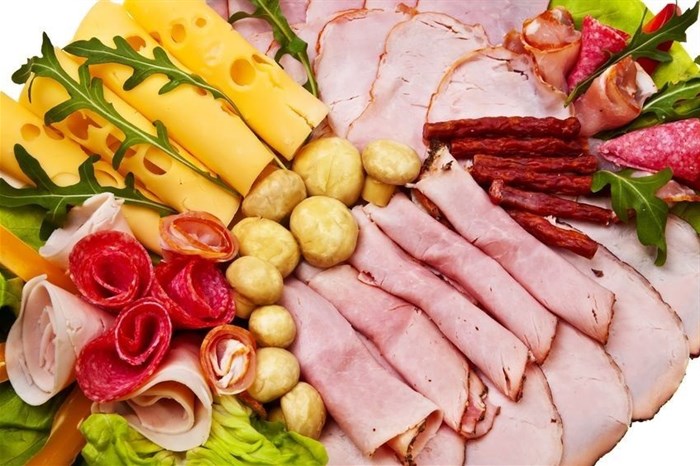One doesn't have to look far to find serious cases of disease or contamination somewhere along the agriculture value chain. This year, five people died in the United States due to E. coli-infected romaine lettuce, and New Zealand is culling nearly 130,000 cows to stave off a Mycoplasma bovis epidemic.

Bartlomiej Jaworski via
123RFCloser to home, we're still suffering the ill-effects of the listeriosis outbreak that claimed more than 200 lives since the beginning of 2017. This will continue to haunt the industry, especially because it can quite easily be repeated if there's a similar slip in maintaining food safety and hygiene.
The problem is that the food chain is integrated in ways that make contagion a very real possibility. And that threat is not only of a bacterial nature, but also economic if allied sectors are considered. It's clear from the severity of these cases that the agriculture sector faces threats on multiple fronts, demanding constant vigilance to avoid a major crisis.
The rapid and deadly spread of South Africa's listeria infection is a harsh reminder of the responsibility that befalls everyone involved in the food value chain. With nearly 18 months passing between discovery to being declared under control by the health minister, it's also clear that these events take some time to be resolved. And that carries a considerable cost.
For the pork industry, that has been the loss of nearly 2,000 jobs as revenue fell by R800m a month. The knock-on effect, according to the SA Pork Producer's Organisation, is the loss of R100m a month in allied industries. These are considerable impacts that won't easily be absorbed or overcome in the short term. Export destinations, for instance, will have to be assured that processed meat products are safe for consumption. Countries including Zambia‚ Malawi‚ Botswana and Namibia have banned South African processed meat imports, while Rwanda banned dairy‚ meat‚ fruit and vegetables.
Adopting a glass-half-full attitude to this latest crisis, one could consider the heightened focus on hygiene in agriculture as a positive outcome.
Disease risk management
Processed meats might be the current focus, but that could shift just as easily and quickly to other sectors that are as prone to bacterial infections and diseases. Take the dairy sector, which has not been exempt from health scares of various descriptions over the years. This is not surprising because there are so many threat points throughout the processing of dairy products. The breadth of the front that the dairy sector has to defend is illustrated in the recent New Zealand decision to cull entire herds. Rather than risking contagion reaching the country's remaining population of more than 6 million cattle, even healthy cattle in infected herds will be culled over the next two years.
These extreme measures are fully justified given the industry's contribution to the country's export earnings. And therein lies an important lesson for the food and agriculture industries: half-measures only prolong the threat. And this applies not only to times of crisis, but to the day-to-day, seemingly mundane, operational activities that make up the working lives of people throughout the dairy supply chain.
It should be believed that every step and action in the production process is vital to delivering products safe for consumption. And that's because every step and action in the production process IS vital.
Handling food or a process in the production chain demands a special attention to detail because each step could potentially introduce some form of contamination. As a supplier of specialist equipment to the agricultural sector, we obviously promote our products as solutions to help producers meet hygiene and food safety standards. But machinery can only contribute so much to being compliant.
Meeting safety, hygeine requirements
It is only in the past month that bans have started being lifted and the epidemic declared under control. Everyone will be counting the cost for some time to come, with far greater vigilance expected toward the possibility of a similar outbreak.
This is something that dairy farmer Marius van Dyk of Wesselsbron in the Free State is particularly wary of because he is at risk even if complying with all the regulations. "I had real sympathy for my fellow farmers who operated in the meat industry," he says. "The same kind of crisis or disease could easily break out in my own industry. You must have accreditation to show that your enclosures meet certain safety and hygiene requirements and produce certification that your herd has no diseases or infections. Despite these tests and processes, it is still easy for a herd to be infected by a careless neighbour or by a passing farmer who neglected safety and quality standards."
This is a very real fear that affects not only dairy producers, but an entire supply chain that spans basic products like milk, to processed dairy like cheese, yoghurt, butter and ice cream. There are multiple points at which infecting or contamination can be introduced unless the most stringent hygiene standards are maintained.
The pressure is possibly felt most acutely by farmers like Van Dyk, who, as the source for the raw material, carries the greatest responsibility. And it's a pressure they have to absorb on top of the running of complex dairy farm operations. It's up to all of us in the agriculture industry to develop this culture of caring about every step in the process. Diligence and vigilance come from understanding the impact that even the smallest action or activity has on our ability to deliver the best quality food to dinner tables around the country.
The processed food industry is going to need such attention to detail by the bucket loads to remedy the damage it's suffered.
This example also carries a stark reminder to all other sectors that we cannot let standards slip if we want to avoid the same value destruction.







































